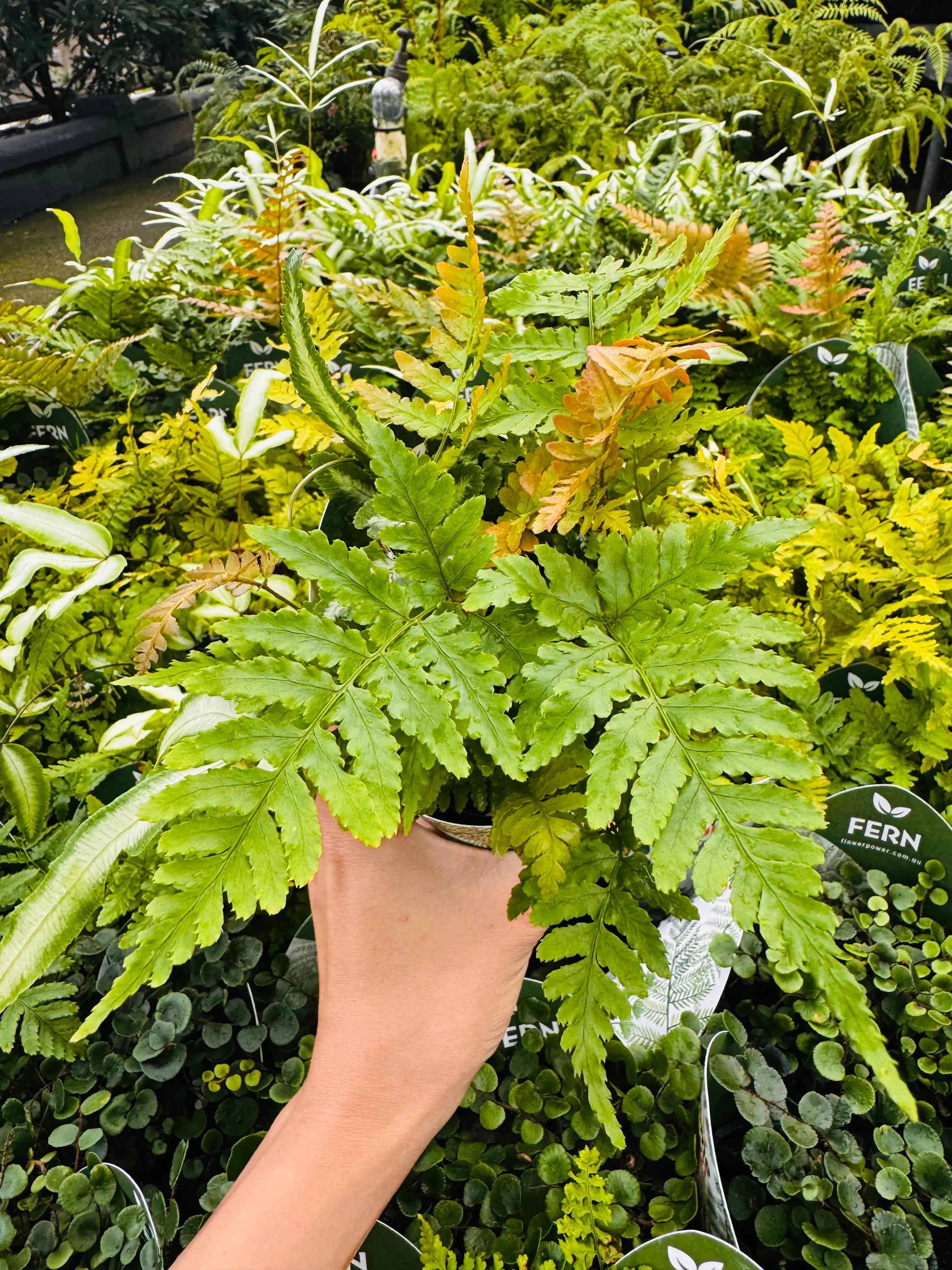
Terra-Autumn Fern DRYOPTERIS ERYTHOSORA
Order today - receive it in as little as 3-5 days.
Return within 30 days of purchase. Duties & taxes are non-refundable.
Guarantee Safe Checkout

Terra-Autumn Fern DRYOPTERIS ERYTHOSORA
Dryopteridaceae erythrosora, commonly known as the Autumn Fern, is a type of deciduous or semi-evergreen fern in the Dryopteridaceae family. It is native to East Asia, including Japan, China, and Korea.
Plant Type:
• Category: Fern
• Growth Habit: Clumping, upright, and spreading
• Foliage: Coppery-red new fronds that mature into deep green
• Hardiness Zones: USDA 5–9 (tolerates mild frost)
Ideal Growing Conditions:
• Light: Prefers partial to full shade
• Humidity: Prefers moderate to high humidity
• Soil: Moist, well-draining, and rich in organic matter
• Watering: Keep soil consistently moist but avoid waterlogging
Uses:
• Popular for shade gardens, woodland gardens, and indoor fern collections
• Adds year-round texture to landscapes
• Suitable for container gardening
Autumn Fern (Dryopteris erythrosora) Care Guide
The Autumn Fern (Dryopteris erythrosora) is a beautiful, hardy fern known for its coppery-red new growth that matures into deep green fronds. It is a low-maintenance, shade-loving plant that thrives in gardens and indoor pots, making it a great choice for both beginners and experienced plant lovers.
1. Light Requirements
✅ Best: Partial to full shade
✅ Tolerates: Dappled sunlight
🚫 Avoid: Direct afternoon sun (can scorch leaves)
Tip: If growing indoors, place it near a north- or east-facing window for indirect light.
2. Watering
✅ Keep the soil consistently moist but not soggy
✅ Water when the top 2–3 cm (1 inch) of soil feels dry
🚫 Avoid overwatering, as it can lead to root rot
Tip: Water at the base to keep fronds dry and prevent fungal issues.
3. Humidity & Temperature
✅ Prefers moderate to high humidity (40–60%)
✅ Ideal temperature: 15–25°C (59–77°F)
🚫 Avoid dry air, cold drafts, or sudden temperature changes
Tip: If indoors, use a humidity tray or occasional misting to keep fronds from drying out.
4. Soil & Potting
✅ Use well-draining, rich organic soil
✅ Best mix: 50% peat or compost + 50% sand or perlite
🚫 Avoid heavy, clay-like soil that retains too much moisture
Tip: Adding mulch around the base helps retain moisture and regulate temperature.
5. Fertilizing
✅ Apply a balanced liquid fertilizer (half-strength) every 4–6 weeks during spring and summer
🚫 Avoid over-fertilizing—excess nutrients can harm the plant
Tip: Use an organic compost or slow-release fertilizer in garden beds for steady growth.
6. Pruning & Maintenance
✅ Remove old, yellow, or damaged fronds to encourage new growth
✅ Trim back in late winter or early spring before new growth appears
Tip: If the fern looks tired, cut back old fronds to allow fresh ones to emerge.
7. Repotting
✅ Repot every 2–3 years or when roots outgrow the container
✅ Best time to repot: Early spring
Tip: If the plant looks crowded, divide it into smaller sections and replant.
8. Propagation
✅ Best method: Division
• Divide the root ball during repotting
• Replant sections in fresh soil, keeping roots moist
🚫 Does not propagate from leaf cuttings or spores easily indoors.
| Quantity |
1 Pot dia 7cm, 1 Pot dia 10cm |
|---|
